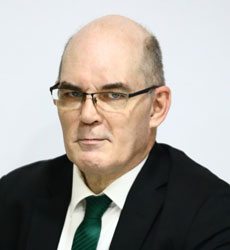THIS past weekend was not a time for good news on the sustainability front. Between the failure of what was supposed to be the final round of talks to create a global plastics treaty and signals from the incoming Trump administration in the US that the new government will not only not support action against climate change but will actively work to thwart such action, there is not much reason for optimism at the moment.
The plastics treaty talks, the fifth such meeting in two years, began on Monday, Nov. 25, in Busan, South Korea, and involved representatives from 175 countries, with a majority of them, about 100 of them, mostly low- and middle-income countries, representing the "high-ambition" group seeking a strong treaty that would limit plastic production and eliminate a number of harmful chemicals. The other 70-odd countries, which include most of the higher-income, industrialized nations as well as the oil producers, are characterized as the "like-minded" nations who want the treaty to focus primarily on addressing plastic pollution.
Register to read this story and more for free.
Signing up for an account helps us improve your browsing experience.
ContinueOR
See our subscription options.


